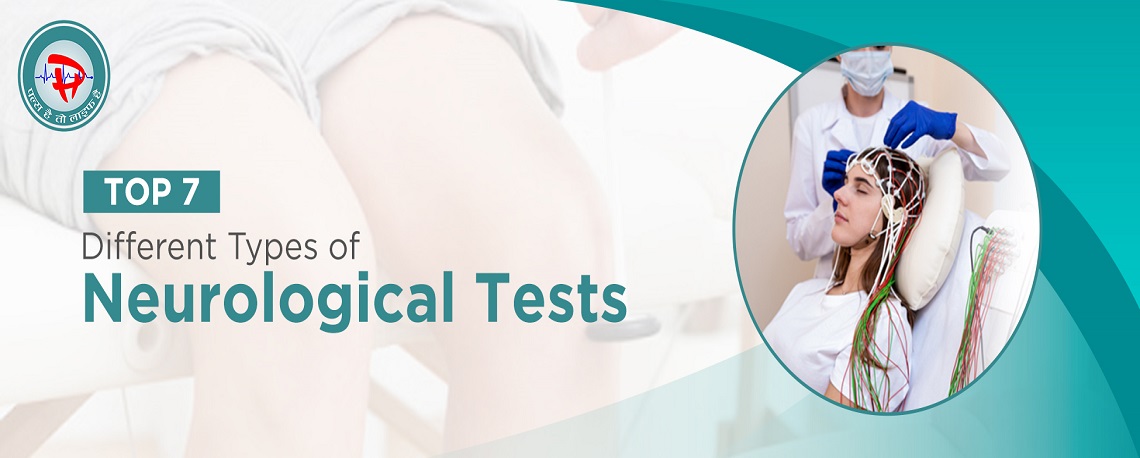More than 3 billion people around the globe are suffering from neurological conditions. For instance, neurological tests are important to diagnose the condition. These ts are crucial diagnostic tools that help doctors understand the health of a patient’s nervous system. These tests can detect abnormalities in the brain, spinal cord, and other parts of the nervous system, helping to diagnose conditions such as epilepsy, stroke, and multiple sclerosis. It’s important to note that neurological conditions are a significant global health concern.
Why do Neurological Tests Matter?
Neurological tests are very important in a person’s life. Here are the following reasons why the importance of neurological tests-
1. Insight into Neurological Health: They provide valuable information about a patient’s neurological condition.
2. Symptom Identification: They help pinpoint the cause of symptoms like seizures, numbness, or movement difficulties.
3. Early Diagnosis: They facilitate early detection of neurological disorders.
4. Timely Treatment: Early diagnosis leads to prompt treatment, potentially averting further complications.
5. Prevention of Complications: Timely intervention can prevent the progression of certain neurological
Top 7 Types of Neurological Tests:
Here are the most common types of neurological tests-
Electroencephalogram (EEG):
This test measures electrical activity in the brain, helping to diagnose conditions like epilepsy. During an EEG, small sensors are attached to your scalp to pick up electrical signals. These signals are then graphed and analyzed by a neurologist to look for abnormalities that could indicate a neurological disorder. To learn more about EEG, contact Pulse Hospital.
Magnetic Resonance Imaging (MRI):
An MRI uses magnetic fields and radio waves to create detailed images of the brain and spinal cord. This non-invasive procedure allows doctors to examine the structure of your nervous system in high detail, helping to identify tumors, strokes, infections, and other neurological conditions.
Computed Tomography (CT) Scan:
A CT scan uses X-rays to create cross-sectional images of the brain, helping to detect tumors, injuries, or other abnormalities. Unlike an MRI, a CT scan can be performed quickly, making it a valuable tool in emergencies.
Lumbar Puncture (Spinal Tap):
In the types of neurological tests, this test involves collecting and analyzing cerebrospinal fluid to diagnose conditions like meningitis or multiple sclerosis. During a lumbar puncture, a needle is inserted into the lower part of your spine to collect fluid. This fluid is then analyzed for signs of infection, bleeding, or other neurological disorders.
Nerve Conduction Velocity (NCV) Test:
This test measures how quickly electrical signals move through a nerve, helping to diagnose nerve damage or dysfunction. During an NCV test, small electrodes are placed on your skin over the nerve being tested. These electrodes send electrical impulses through the nerve, and the speed at which these impulses travel is measured.
Electromyography (EMG):
An EMG measures electrical activity in muscles, helping to diagnose conditions affecting muscle function. During an EMG, a small needle electrode is inserted into a muscle to record electrical activity. This activity can help identify muscle disorders, nerve disorders, and disorders affecting the connection between nerves and muscles.
Positron Emission Tomography (PET) Scan:
A PET scan uses a small amount of radioactive material to help visualize brain function and detect abnormalities. During a PET scan, you are injected with a small amount of radioactive glucose. This glucose is taken up by active areas of your brain, allowing doctors to see which areas are functioning normally and which are not.
Neurological Tests Involve the Following Steps:
1. Preparation: The patient may need to avoid certain medications or food before the test.
2. Procedure: The specific procedure will depend on the type of test. Some tests may involve the use of imaging equipment, while others may require the collection of bodily fluids.
3. Analysis: After the test, a neurologist will analyze the results to diagnose any neurological conditions.
Conclusion
Neurological tests play a vital role in diagnosing and managing neurological conditions. By understanding the different types of neurological tests and what they involve, patients can better navigate their healthcare journey. Remember, early detection is key to managing neurological conditions effectively. For better neurological life you should consult Pulse Hospital.

